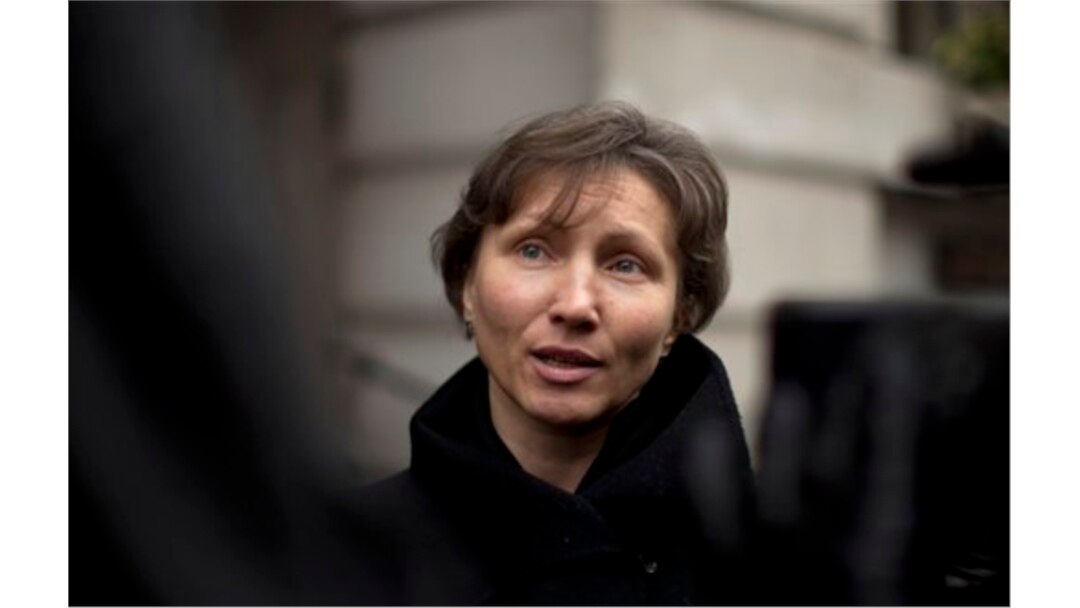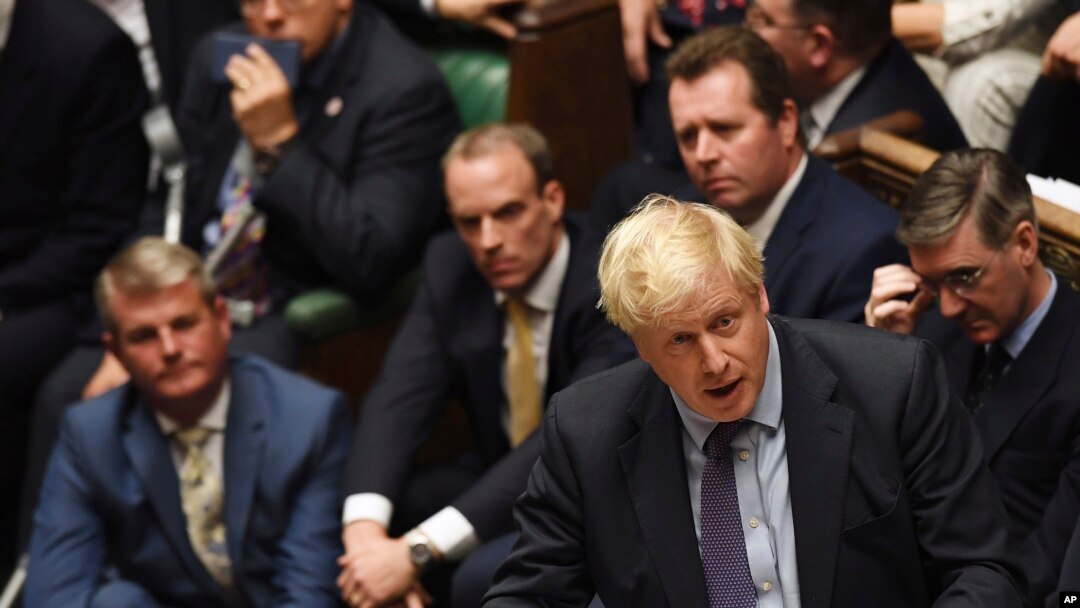A senior official from Britain’s main opposition Labour Party says that leaks from a parliamentary report on Russian interference in British politics raises important questions about the fairness of next month’s general election.
An 18-month-long investigation by the British parliament’s cross-party intelligence committee has concluded Russian meddling may have impacted Britain’s 2016 Brexit referendum, though the panel couldn't decide how much it affected the vote. The leak of the report's conclusion, published in Britain’s Sunday Times newspaper, is adding to pressure on Prime Minister Boris Johnson to publish the full findings of the inquiry before Britons head to the polls on December 12.
Emily Thornberry, Labour’s foreign affairs spokesperson, said the disclosure that Russian meddling may have distorted the Brexit vote raises questions about how next month’s election can be safeguarded. “If it is correct that our security services have been unable to reach a conclusion about the extent or impact of Russian interference in the 2016 referendum, then it raises serious questions which require serious answers,” she said.
If the report is not immediately published by Johnson “people will rightly continue to ask: what is he trying to hide from the British public and why,” she added.
Opponents have accused the government of sitting on the report by parliament’s Intelligence and Security Committee (ISC), despite the fact that the country’s security services have cleared it for publication. Witnesses who testified to the panel say the report will contain embarrassing disclosures about the funding of the ruling Conservatives by London-based Russian oligarchs tied to the Kremlin or Russian intelligence agencies.

FILE - Marina Litvinenko, widow of former Russian intelligence officer Alexander Litvinenko, addresses media following pre-inquest review, London, Dec. 13, 2012.
The delay in publishing the report could well become the subject of at lest one court action this week, and possibly more. Lawyers acting for the widow of Alexander Litvinenko, a former KGB agent and Russian dissident who was murdered with a radioactive isotope in 2006, sent Johnson a letter last week saying she planned to take legal action unless the report’s findings are released in full ahead of the election. An official British inquiry concluded Litvinenko was murdered on the orders of the Kremlin.
Marina Litvinenko’s says there’s “profound public interest in the information being disclosed to the public, so they are fully informed of the extent of Russian interference in British politics before they go to the polls on 12 December 2019.”
An urgent legal challenge is also being planned to force the government’s hand by the Bureau of Investigative Journalism, which has written to Downing Street demanding publication. Lawyers for the bureau are planning to ask for a judicial review
Rachel Oldroyd, managing editor of the bureau, said in a statement: “The absolute minimum voters in any democratic election should expect is the knowledge that the previous election was fair and free of outside interference. British voters are being denied that.”
Security minister Brandon Lewis told Sky News Sunday that the report couldn’t be published during the election campaign, which officially got underway last week, because of rules which restrict government announcements during the run-up to a general election.
“We want to make sure, particularly where national security is involved, we go through that process properly and thoroughly,” he said. “We can’t publish things during the general election ... but after the general election that report will be published,” he said.
FILE - MP Dominic Grieve, the head of the Parliamentary Intelligence and Security Committee, is seen at the Conservative Party annual conference in Manchester, Britain, Sept. 30, 2019.
But critics, including former attorney general Dominic Grieve, who chaired the committee, say the 50-page dossier, which examined the level of Russian infiltration of the higher ranks of British politics as well as allegations of a Kremlin-sponsored influence campaign during the 2016 referendum, was vetted by the country’s security agencies days before the election was called and could have been released before electioneering was in full swing.
The report “comments directly on what has been seen as a perceived threat to our democratic processes,” says Grieve. He says members of the committee had expected Johnson to approve publication ahead of the election.
“Someone in Downing Street calculated that it was less embarrassing to suppress the intelligence and security committee’s report into Russian interference in the UK than it was to publish it,” according to Oliver Bullough, author of the book “Moneyland: Why Thieves and Crooks Now Rule the World and How to Take It Back.”
According to the Sunday Times, the parliamentary panel found that anti-EU, pro-Brexit articles disseminated by Kremlin-controlled outlets in the run-up to the referendum campaign had four times more social media impact than those put out by British Leave campaigns. The report also reportedly criticizes British intelligence agencies for failing to devote sufficient resources to combat Kremlin meddling in British politics.
Johnson dismissed claims Friday that he was suppressing the report to save the Conservatives from embarrassment and he defended taking money from Russian oligarchs living in London, saying there’s no evidence of Moscow interference.
“All donations to the Conservative Party are properly vetted and properly publicized,” he said during a BBC radio interview. He added: “I think that you’ve got to be very careful before you simply cast aspersions on everybody who comes from a certain country just because of their nationality.”


